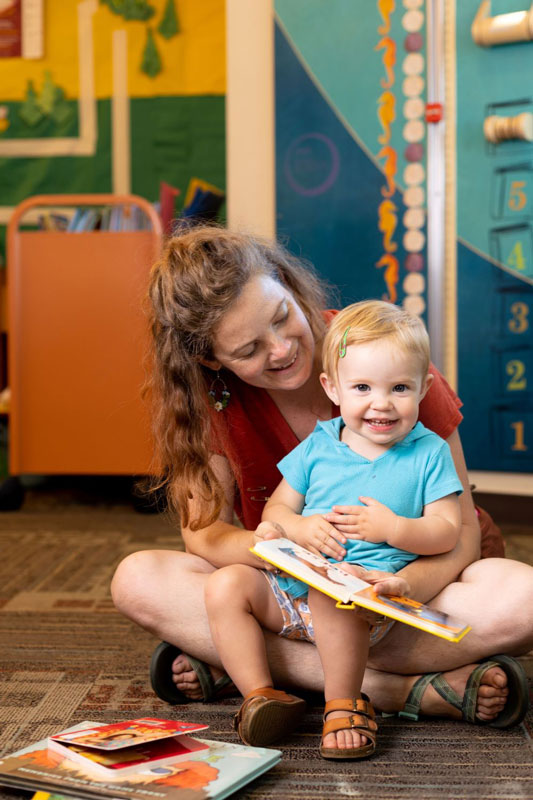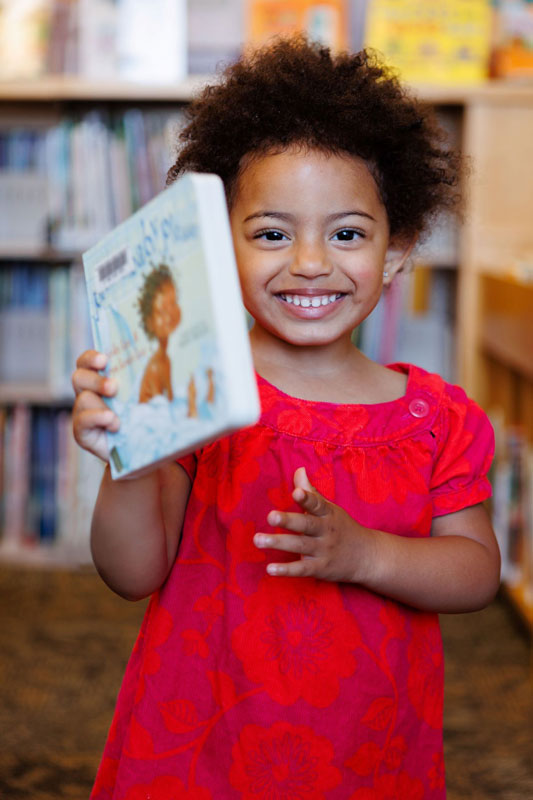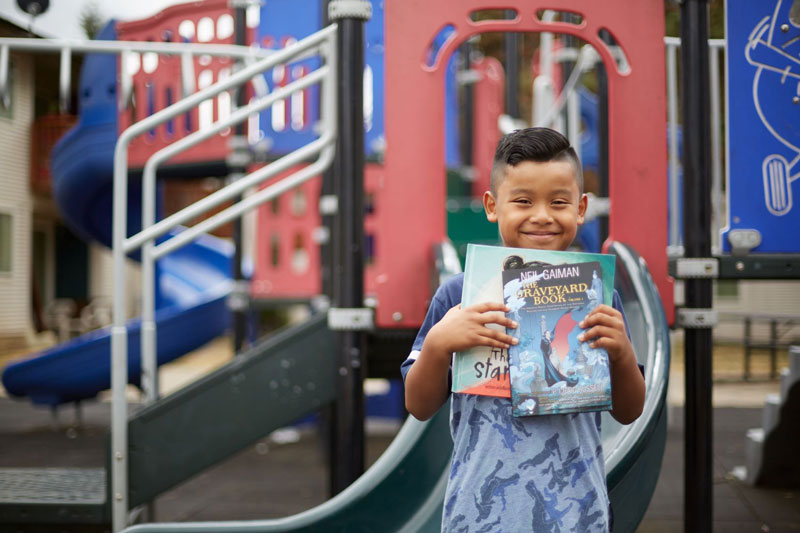Arts, Culture & Education | Multnomah Library
© Conservation Media / WWF-US

One of Portland’s Most Vital Resources
The Multnomah County Library System is one of Portland’s most vital educational and cultural resources. It is an anchor for our community, connecting hundreds of thousands of individuals and families to resources they require. It is also one of the busiest, and most respected library systems in the nation.
The Multnomah County Library is currently undergoing a dramatic transformation that will increase the system’s usable space by nearly 60% and greatly improve the library’s ability to serve the Portland metro community into the future. Reaching and serving children and families living in under-resourced communities is an especially high priority. The plan will build or expand eight libraries and remodel 11 others.
Central to these new or renovated libraries will be interactive play spaces. Research shows that playing and learning in a rich and stimulating environment has a great impact on the developing brain of a young child. Children who explore and learn through interactive play have an easier time learning to read and are more likely to succeed in all academic subjects when they start school. These spaces will create a draw for young families. Children and parents will be able to benefit from the library’s many resources, including a wide array of children’s books, story time programs and engaging literacy programs.
Over the last two years, the Olseth Family Foundation has partnered with the Library Foundation to help make these interactive play spaces a reality. The Library Foundation is a nonprofit that works with librarians to determine where private support can best enhance the Multnomah County Library’s programs and initiatives, with a special focus on those that make a life-changing difference for children facing the risk factors for low literacy.
Olseth Family Foundation-Supported Projects:
Library Connect — An initiative to connect every K-12 student in Multnomah County with the many services of their public library. This program enabled 80,000 students to use their student ID number as a library card number, giving them access to library resources in school or at home. This program allowed vulnerable students to access online educational resources during the pandemic, including personal tutoring, homework help, math coaching, online databases, digital books, magazines, newspapers and audiobooks from home and the classroom.
Expansion of Multicultural Collection — The program purchased nearly 30,000 multicultural books in English, Spanish, Vietnamese, Russian, and Chinese, allowing more Multnomah County residents access to library books.
Mini-Maker Kits – Grab and go science kits that school age children and teens can build and create at home. The kits were designed to emphasize key STEAM concepts and skills such as robotics, physics and engineering.


Every Child A Reader Early Literacy Program – Children bring home bookbags brimming with colorful books, in up to 20 languages and cultures. Parents learn simple, research-based, read-aloud strategies to support their children’s growing skills and excitement about reading. Bilingual librarians also train and mentor 400 childcare providers, caregivers and health workers to support literacy development for at-risk families.
Literacy education for new parents – Families with a new baby go home from the hospital with an educational guide on the first two years of brain development, a children’s book about visiting the library, an application for their baby’s first library card, and an incentive to visit to the library.
Parent education through WIC –Moms receive compelling incentives to participate in training sessions with librarians on early brain development. They also learn about literacy practices through the library’s educational, bilingual story times. This program reaches the lowest-income moms and their children, through a partnership with the WIC nutrition program.
Diverse children’s books in up to 20 languages and cultures – Librarians will expand their physical and e-book collections with multicultural books that reflect the diversity of families across our community. Studies have shown that children are more likely to engage with books that closely fit their culture and life experiences.
